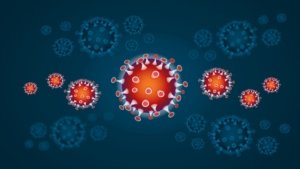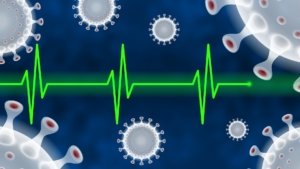6 Proven and Effective Ways To Boost Your Body’s Natural Defenses Also Called Immune System Naturally | Naturactin Health and Wellness
Naturactin Health and Wellness
1- What is the Immune System?
The immune system is made up of special organs, cells, and chemicals that fight infection (microbes). The main parts of the immune system are white blood cells, antibodies, the complement system, the lymphatic system, the spleen, the thymus, and the bone marrow. These are the parts of your immune system that actively fight infection.
2- The immune system and microbial infection

The immune system keeps a record of every microbe it has ever defeated, in types of white blood cells (B- and T-lymphocytes) known as memory cells. This means it can recognize and destroy the microbe quickly if it enters the body again before it can multiply and make you feel sick.
Some infections, like the flu and the common cold, must be fought many times because so many different viruses or strains of the same type of virus can cause these illnesses. Catching a cold or flu from one virus does not give you immunity against the others.
3- Parts of the immune system
The main parts of the immune system are:
- white blood cells
- antibodies
- complement system
- lymphatic system
- spleen
- bone marrow
- thymus
a- White blood cells

White blood cells are the key players in your immune system. They are made in your bone marrow and are part of the lymphatic system. White blood cells move through blood and tissue throughout your body, looking for foreign invaders (microbes) such as bacteria, viruses, parasites, and fungi. When they find them, they launch an immune attack.
White blood cells include lymphocytes (such as B-cells, T-cells, and natural killer cells), and many other types of immune cells.
b-Antibodies
Antibodies help the body to fight microbes or the toxins (poisons) they produce. They do this by recognizing substances called antigens on the surface of the microbe, or in the chemicals they produce, which mark the microbe or toxin as being foreign. The antibodies then mark these antigens for destruction. There are many cells, proteins, and chemicals involved in this attack.
c- Complement system
The complement system is made up of proteins whose actions complement the work done by antibodies.
d- Lymphatic system
The lymphatic system is a network of delicate tubes throughout the body. The main roles of the lymphatic system are to:
- manage the fluid levels in the body
- react to bacteria
- deal with cancer cells
- deal with cell products that otherwise would result in disease or disorders
- absorb some of the fats in our diet from the intestine.
The lymphatic system is made up of:
- lymph nodes (also called lymph glands) — which trap microbes
- lymph vessels — tubes that carry lymph, the colorless fluid that bathes your body’s tissues and contains infection-fighting white blood cells
- white blood cells (lymphocytes).
e- Spleen
The spleen is a blood-filtering organ that removes microbes and destroys old or damaged red blood cells. It also makes disease-fighting components of the immune system (including antibodies and lymphocytes).
f- Bone marrow
Bone marrow is the spongy tissue found inside your bones. It produces the red blood cells our bodies need to carry oxygen, the white blood cells we use to fight infection, and the platelets we need to help our blood clot.
g- Thymus
The thymus filters and monitors your blood content. It produces white blood cells called T-lymphocytes.
4- Six tips to strengthen your immune system naturally.
If you want to boost your immune health, you may wonder how to help your body fight off illnesses. While bolstering your immunity is easier said than done, several dietary and lifestyle changes may strengthen your body’s natural defenses and help you fight harmful pathogens or disease-causing organisms.
a- Get enough sleep

Sleep and immunity are closely tied. In fact, inadequate or poor-quality sleep is linked to a higher susceptibility to sickness. In a study in 164 healthy adults, those who slept fewer than 6 hours each night were more likely to catch a cold than those who slept 6 hours or more each night. Getting adequate rest may strengthen your natural immunity. Also, you may sleep more when sick to allow your immune system to better fight the illness.
b- Eat more whole plant foods

Whole plant foods like fruits, vegetables, nuts, seeds, and legumes are rich in nutrients and antioxidants that may give you an upper hand against harmful pathogens. The antioxidants in these foods help decrease inflammation by combatting unstable compounds called free radicals, which can cause inflammation when they build up in your body at high levels.
c- Eat more healthy fats
Healthy fats, like those found in olive oil and salmon, may boost your body’s immune response to pathogens by decreasing inflammation. Although low-level inflammation is a normal response to stress or injury, chronic inflammation can suppress your immune system. Olive oil, which is highly anti-inflammatory, is linked to a decreased risk of chronic diseases like heart disease and type 2 diabetes. Plus, its anti-inflammatory properties may help your body fight off harmful disease-causing bacteria and viruses. Omega-3 fatty acids, such as those in salmon and chia seeds, fight inflammation as well.
d- Eat more fermented foods or take a Probiotics Supplement
Fermented foods are rich in beneficial bacteria called probiotics, which populate your digestive tract. These foods include yogurt, sauerkraut, kimchi, kefir, and natto. Research suggests that a flourishing network of gut bacteria can help your immune cells differentiate between normal, healthy cells and harmful invader organisms.
e- Engage in moderate exercise and stay hydrated

Although prolonged intense exercise can suppress your immune system, moderate exercise can give it a boost. Studies indicate that even a single session of moderate exercise can boost the effectiveness of vaccines in people with compromised immune systems. Hydration doesn’t necessarily protect you from germs and viruses, but preventing dehydration is important to your overall health.
f- Get proper supplements loaded with vitamin C, Vitamin D, Zinc, Elderberry.
Vitamin C. According to a review in over 11,000 people, taking 1,000–2,000 mg of vitamin C per day reduced the duration of colds by 8% in adults and 14% in children. Yet, supplementing did not prevent the cold, to begin with.
Vitamin D. Vitamin D deficiency may increase your chances of getting sick, so supplementing may counteract this effect. Nonetheless, taking vitamin D when you already have adequate levels doesn’t seem to provide extra benefits.
Zinc. In a review of 575 people with the common cold, supplementing with more than 75 mg of zinc per day reduced the duration of the cold by 33%.
Elderberry. One small review found that elderberry could reduce the symptoms of viral upper respiratory infections, but more research is needed.

Paul Ambolo
Blog Contributor
For Inquiries feel free to Contact Us
For our Free Health Quiz, visit www.naturactin.net
Visit our store – www.naturactin.shop






Leave a Reply
Want to join the discussion?Feel free to contribute!